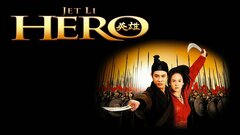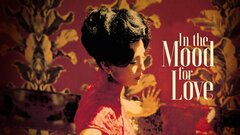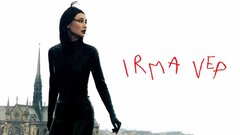As one of Hong Kong's most popular and well-respected performers, actress Maggie Cheung has thrived on versatility, riding a wave of success in numerous martial arts flicks and acclaimed dramatic films on her way to becoming an international star. Having played everything - an action hero, a comedienne, a damsel in distress, a lovelorn married woman, a suicidal silent film actress, and in one film, herself - Cheung emerged from her native Hong Kong to win acclaim abroad, including in the United States.
In Hong Kong, she first established herself as the classic - albeit stereotypical - damsel in distress opposite action hero Jackie Chan in the first three pictures in the "Police Story" (1985-1992) franchise. Unsatisfied with the limiting roles of her early career, Cheung branched out into more challenging dramatic performances through her collaboration with Wong Kar-wai, who directed the actress in "As Tears Go By" (1989), "Ashes of Time" (1994) and the sultry "In the Mood for Love" (2001).
In between, she won several top awards for her performance as doomed silent film star Ruan Lingyu in "Centre Stage" (1992), while earning high praise for her role in "Comrades: Almost a Love Story" (1996). But she eventually broke through as an international star with Zhang Yimou's epic historical fantasy "Hero" (2004), which finally allowed Cheung to display her wide-ranging talents to a larger foreign audience.
Cheung was born in Hong Kong on Sept. 20, 1964. At eight years-old, she moved to England with her family, where Cheung remained until completing secondary school. Being the only Asian student, Cheung grew up feeling the need to constantly change her looks, wearing different clothes and dying her hair to fit in. Her return to Hong Kong at age 18 created more feelings of alienation, having no longer understood her native tongue.
Meanwhile, Cheung began a modeling career, which led to television commercials, a first runner-up prize for Miss Hong Kong in 1983 and a semifinalist finish that same year in the Miss Hong Kong pageant, and eventually a film career. Her life as a film actress began slowly with throw-away movies like the romantic comedies "Prince Charming" (1984), directed by Wong Jing, "Behind the Yellow Line" (1984) and "Girl with the Diamond Slipper (1985). Following the strangely titled sci-fi Christmas movie, "It's a Drink, It's a Bomb!" (1985), Cheung landed her big break when she starred alongside Jackie Chan - himself already popular in Asia - in "Police Story" (1985), playing May, the girlfriend and stereotypical damsel-in-distress opposite Chan's cop hero Ka Kui.
In one of her earliest appearances on television, Cheung had the titular role in "Rose" (1986), a romantic drama in which she was a young woman who marries a man who creepily resembles her deceased, overly-protective brother (both played by Chow Yun-fat). Also that year, she joined Chow for the horror fantasy "The Seventh Curse" (1986), before rejoining Jackie Chan for the slapstick martial arts flick "Project A Part II" (1987).
She returned to the sequel "Police Story II" (1988) as the doting and often bewildered girlfriend of cop Jackie Chan in constant need of rescue. Though the popularity of the film franchise boosted her career, Cheung's talent was vastly underused. But as talented performers almost always do, Cheung rose above the underwhelming material coming her way to find more dramatic projects worthy of her gifts. She appeared in Stanley Kwan's drama "Full Moon in New York" (1989), playing a successful woman with no time for a romantic life, a role that earned her the 1989 Taiwan Golden Horse Award for Best Actress.
That same year, Cheung made her first of several collaborations with acclaimed director Wong Kar-wai in "As Tears Go By" (1989), a gritty crime saga in which she played a country girl who falls for a quick tempered young gangster (Andy Lau).
Cheung received more acclaim for "Song of the Exile" (1990), directed by Ann Hui, and "Days of Being Wild (1991), Wong Kar-wai's dark and brooding follow-up to "As Tears Go By." In "A Better Tomorrow III: Love and Death in Saigon" (1990), Cheung returned to action, playing opposite Chow Yun-Fat in the second sequel to the ultra-hip classic originally directed by John Woo. But it was for her role in "Centre Stage" (1992) that Cheung earned several awards for Best Actress, including the Taiwan Golden Horse, the Hong Kong Film Award and the Silver Bear Award from the Berlin International Film Festival, while cementing her reputation as a serious dramatic actress.
In her second Stanley Kwan film, Cheung starred as 1930s actress Ruan Lingyu, once dubbed China's Greta Garbo, who took her own life at the young age of 24 after being unable to cope with public accusations that she was having an affair with a married man. Cheung followed "Centre Stage" with two more martial arts comedies, both starring Jackie Chan: the forgettable "Twin Dragons" (1992) and "The Heroic Trio" (1992), a cartoonish feature that pitted three heroic women, including Michelle Yeoh, against forces of evil bent on creating China's new leader.
As her career progressed, Cheung began choosing her roles more carefully, though she returned for a third and last time as the distraught girlfriend May in "Police Story 3: Supercop" (1992). Despite the popularity she received for her more commercial, but less substantive flicks, Cheung felt largely unchallenged. Her career took a decidedly dramatic turn in the mid-1990s with "Ashes of Time" (1994), her third collaboration with director Wong Kar-wai. Cheung played The Woman in a lyrical and mesmerizing epic that eschewed standard martial arts conventions to meditate upon the themes of memory and love.
Cheung traveled to Paris for her next feature, "Irma Vep" (1996), directed by Olivier Assayas, whom she later married; she played herself in a role written by Assayas before the two had ever met. In the dark comedy about filmmaking, Cheung goes to Paris to appear in a remake the silent-era film, "Les Vampires" (1915). Forced to speak in broken English and defend a has-been director, Cheung immerses herself so fully in the role that she finds her life mimicking art. The film was a hit on the international film festival circuit and served to reinforce Cheung's onscreen prowess.
Cheung continued to amass awards while being lavished with critical praise following her performance in "Comrades: Almost a Love Story" (1996), which earned her Best Actress awards at Taiwan's 1997 Golden Horse Film Festival and the Hong Kong Film Awards. She next appeared in Wayne Wang's "Chinese Box" (1997), starring Jeremy Irons and Gong Li, which toured the festival circuit and received a rare American release for the actress.
Meanwhile, Cheung worked for a fourth time with Wong Kar-wai in arguably their best collaboration, "In the Mood for Love" (2001). Lush, romantic, and full of longing, "In the Mood for Love" followed a man (Tony Leung) and woman (Cheung), both married to other people, as they move in next door to each other and embark on a slow-burning affair. Certainly one of the finest performances of her career, Cheung won another Golden Horse Award for Best Actress for her efforts. She maintained her winning streak with "Clean" (2004), playing a washed-up rock star struggling to overcome addiction, which won her Best Actress at the 2004 Cannes Film Festival.
In "Hero" (2004), Cheung returned to the martial arts genre in Zhang Yimou's beautifully filmed and ambitiously directed period epic that also starred Jet Li, Tony Leung and a fresh-faced Ziyi Zhang. After becoming one of Asia's highest grossing films in history, "Hero" also resonated with American audiences, taking the top spot at the U.S. box office with over $18 million its first weekend. With that kind of exposure, Cheung had finally positioned herself to become a true international star.
Also that year, she appeared in flashback for "2046" (2004), Wong Kar-wai's ambitiously futuristic follow-up to "In the Mood for Love." Though her brief appearance in Quentin Tarantino's Oscar-nominated "Inglorious Basterds" (2009) was left on the cutting room floor, Cheung made a cameo appearance as an anonymous crying woman in the ensemble Hong Kong romantic comedy, "Hot Summer Days" (2010).






























































































































